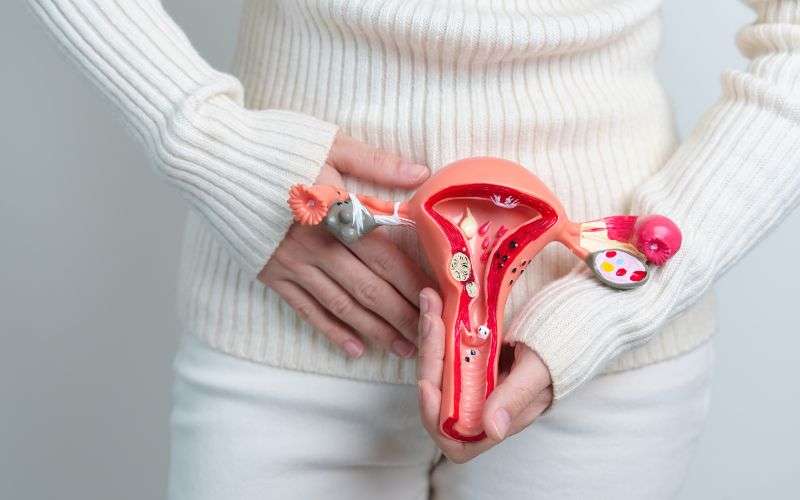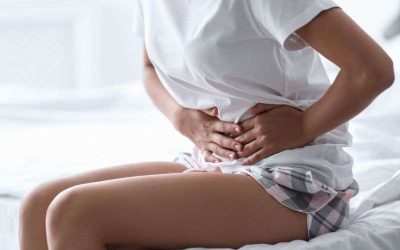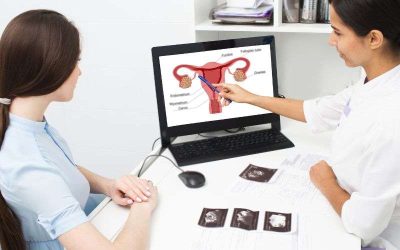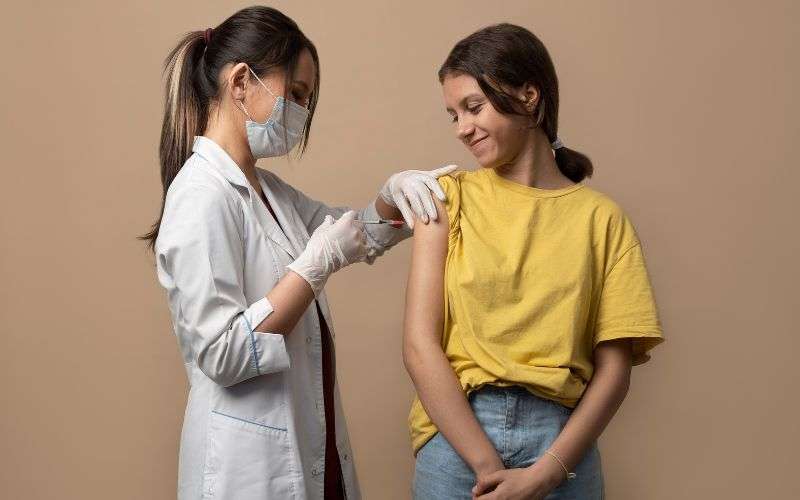HPV Vaccine for Women in Bangalore

At Mom & More Clinic, we prioritize your health and well-being at every stage of life. One of the key areas where we focus on preventive care is HPV Vaccine for Women in Bangalore . HPV is a common virus that can cause several types of cancer, including cervical, vulvar, vaginal, and anal cancers. The good news is that the HPV vaccine is an effective way to protect yourself against this virus and reduce the risk of developing HPV-related cancers.
In this page, we’ll guide you through everything you need to know about the HPV vaccine for women at Mom & More Clinic. From the benefits of the vaccine to the best time to get vaccinated and the science behind it, we’ve got you covered with accurate, easy-to-understand information.
What is HPV and Why Should Women Get Vaccinated?
HPV (Human Papillomavirus) is a group of more than 200 related viruses that are transmitted through intimate skin-to-skin contact. Some types of HPV can cause genital warts, while others are linked to various cancers, including cervical, anal, and throat cancers. In fact, HPV is the leading cause of cervical cancer in women worldwide.
While most HPV infections go away on their own, some can persist and cause health problems. Fortunately, the HPV vaccine offers a powerful solution to help prevent these serious health risks. The vaccine works by protecting against the most common types of HPV that cause cancer and genital warts, offering long-term protection.
Why Is the HPV Vaccine Important for Women?
The HPV vaccine is one of the most effective ways to prevent cervical cancer and other cancers linked to HPV. Cervical cancer is one of the most common cancers in women, and the HPV vaccine has the potential to reduce the risk of developing this cancer by up to 90%. Vaccination also protects against other HPV-related conditions, such as:
- Cervical Cancer: The most common cancer associated with HPV. The vaccine protects against the strains of HPV that are most likely to cause cervical cancer.
- Vulvar and Vaginal Cancer: HPV is also a known cause of vulvar and vaginal cancers, and the vaccine helps to prevent these cancers as well.
- Anal and Throat Cancer: Certain types of HPV can cause cancers in the anal and throat areas. Vaccination provides protection against these less common, but still serious, cancers.
- Genital Warts: HPV types 6 and 11 are responsible for about 90% of genital warts. The vaccine offers protection against these strains, reducing the risk of developing genital warts.
By getting vaccinated, women can protect themselves from these potentially life-threatening conditions, giving them peace of mind and a healthier future.

When Should Women Get the HPV Vaccine?
The HPV vaccine is most effective when administered at an early age, ideally before any exposure to the virus. In general, the following recommendations apply:
- Girls and Boys (ages 9 to 14): It is recommended that both girls and boys receive the HPV vaccine between the ages of 9 and 14. At this age, the immune system responds better to the vaccine, and it is before any exposure to the virus occurs. The vaccine is given in two doses, spaced 6 to 12 months apart.
- Young Women and Men (ages 15 to 26): If you have not received the vaccine at a younger age, you can still benefit from it between the ages of 15 and 26. In this age group, the vaccine is given in three doses over six months for maximum protection.
- Women aged 27 to 45: Women in this age group who have not yet been vaccinated may still benefit from the vaccine. Although it is less effective in preventing existing HPV infections, it can still help protect against new infections that may occur in the future. It’s best to discuss your individual situation with a healthcare provider to determine whether the vaccine is appropriate for you.
How Does the HPV Vaccine Work?
The HPV vaccine contains virus-like particles that mimic the structure of the actual virus but do not contain any live virus. These particles stimulate your immune system to produce antibodies that protect against specific types of HPV. Once you’re vaccinated, your body will be able to recognize and fight off these HPV strains if you are exposed to them in the future.
The vaccine is highly effective in preventing the strains of HPV that are responsible for most cases of cervical cancer, as well as other HPV-related cancers and genital warts. It’s important to note that the vaccine does not treat existing HPV infections, so it is most effective when given before any exposure to the virus.
Safety and Side Effects of the HPV Vaccine
The HPV vaccine has been extensively tested and is proven to be safe and effective. It has been recommended by health organizations around the world, including the World Health Organization (WHO) and the Centers for Disease Control and Prevention (CDC).
Like all vaccines, the HPV vaccine can cause mild side effects in some people. The most common side effects include:
- Pain at the injection site: Some people experience mild pain, redness, or swelling where the vaccine was injected.
- Fever: A low-grade fever is a possible side effect, which usually goes away on its own.
- Headache and fatigue: Some people may experience mild headaches or feel tired after the vaccine.
- Nausea: In rare cases, some individuals may feel slightly nauseous after receiving the vaccine.
These side effects are usually mild and go away within a few days. Serious side effects are very rare, and the benefits of vaccination far outweigh the risks.

HPV Vaccine at Mom & More Clinic
At Mom & More Clinic, we are dedicated to providing you with high-quality care and preventive treatments to help you stay healthy. Our clinic offers the HPV vaccine for women in a safe, comfortable, and professional setting. Here’s what you can expect when you get your HPV vaccine with us:
- Expert Consultation
Before getting vaccinated, our healthcare professionals will conduct a thorough consultation to discuss your medical history, any potential allergies, and whether the HPV vaccine is suitable for you. We will explain the vaccine’s benefits, potential side effects, and answer any questions you may have, ensuring you feel informed and confident in your decision.
- Safe and Comfortable Vaccination Experience
Our skilled healthcare team will administer the HPV vaccine in a safe and hygienic manner, ensuring you feel comfortable throughout the process. We offer a calm and welcoming environment to ensure a positive experience.
- Follow-up Care and Support
Once you receive your vaccine, our team will provide guidance on any aftercare, including managing any minor side effects. We will also schedule any necessary follow-up appointments to complete the vaccine series, ensuring you get the full benefit of the vaccine.
- Ongoing Health Education
At Mom & More Clinic, we believe in empowering women with the knowledge they need to take control of their health. We offer ongoing education about HPV, cervical cancer prevention, and other important health topics to help you make informed decisions about your well-being.
Schedule Your Appointment Today
Protect yourself against the risks of HPV and the cancers it can cause by getting vaccinated at Mom & More Clinic. Our compassionate healthcare team is here to guide you through the process and ensure you receive the best care possible.
At Mom & More Clinic, your health is our priority, and we’re here to help you live a healthier, cancer-free life with the protection of the HPV vaccine.
Frequently Asked Questions (FAQs)
The HPV vaccine protects against the human papillomavirus (HPV), which can lead to several types of cancers, including cervical, vaginal, vulvar, and anal cancer, as well as genital warts. The vaccine is important for women because it helps prevent these cancers caused by high-risk HPV strains and reduces the risk of other HPV-related diseases.
The HPV vaccine is most effective when given at ages 11 or 12, before any exposure to the virus. However, women can still benefit from the vaccine up to age 26. For women between 27 and 45, the vaccine may still provide protection, but it’s less effective if they’ve already been exposed to the virus. It’s best to consult with a healthcare provider to determine the ideal timing.
The HPV vaccine is generally safe, and side effects are usually mild. Common side effects include soreness at the injection site, headache, fatigue, or fever. Serious side effects are rare, but women should contact a healthcare provider if they experience any severe reactions. It is important to remember that the benefits of vaccination far outweigh the risks of side effects.
For individuals under 15, the HPV vaccine is typically given in two doses, 6 to 12 months apart. For those aged 15 and older, three doses are recommended, with the second dose given 1-2 months after the first and the third dose 6 months after the first. Following the recommended schedule ensures maximum protection.
The HPV vaccine protects against the most common and high-risk strains of HPV, including types 16 and 18, which are responsible for about 70% of cervical cancer cases. The vaccine also protects against types 6 and 11, which cause genital warts. However, it doesn’t protect against all types of HPV, so regular screening (like Pap smears) is still important for women.
